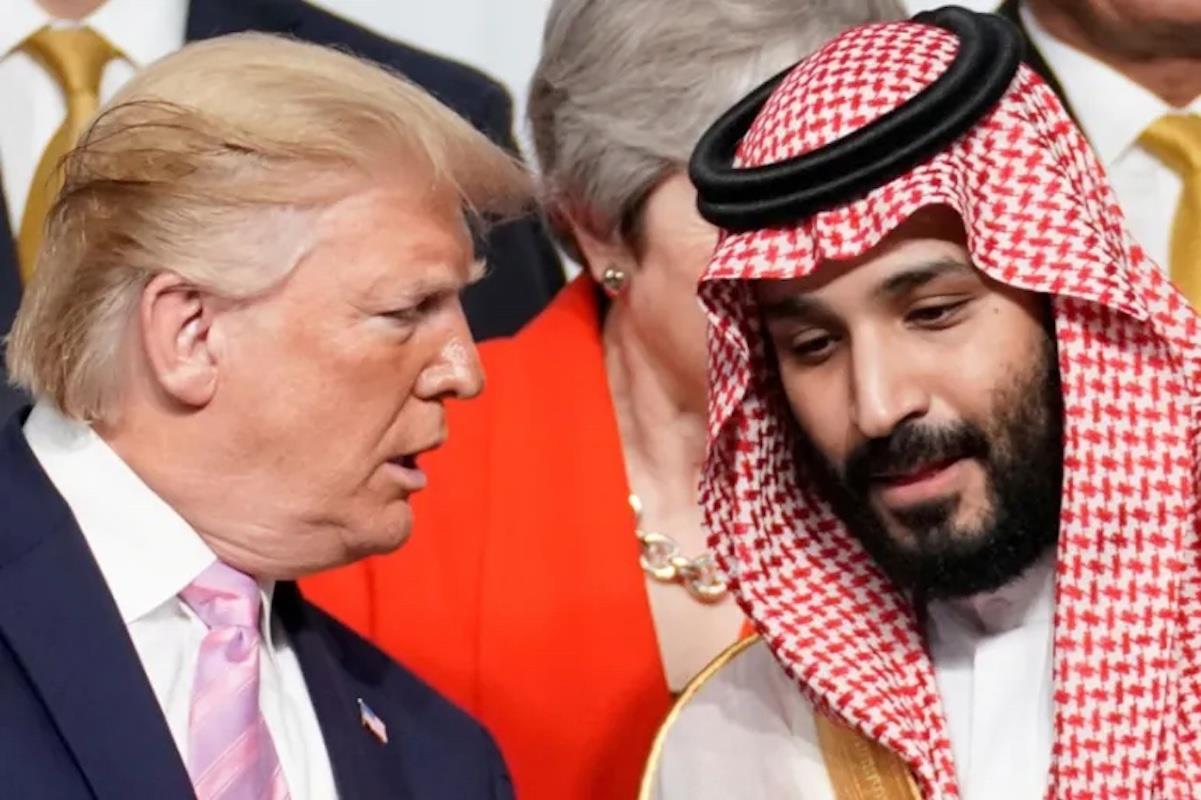
US-Saudi Defense Treaty Would Be A Strategic Mistake
This is precisely the kind of open-ended security commitment that rational realists have warned against for decades-and that American voters across the political spectrum are increasingly skeptical of.
Yet Washington's foreign policy establishment, still captive to outdated assumptions about US interests in the region, seems determined to double down on Middle East militarism.
Obsolete Gulf security logicThe case for providing security guarantees to Saudi Arabia rests on premises that dissolved with the Cold War-and should have been buried entirely after the fracking revolution made the United States energy independent.
We're told this treaty would“bolster the US-led alliance against Iran,”“check Chinese influence,” and facilitate Israeli-Saudi normalization. Each of these alleged benefits ranges from vastly overstated to demonstrably false.
Start with Iran. The Saudi-Iranian rivalry is a regional power struggle rooted in sectarian differences and competing claims to leadership in the Islamic world. It has precisely nothing to do with core American security interests.
More remarkably, when Washington stepped back and allowed regional actors to manage their own affairs, we saw productive results: the Chinese-brokered detente between Riyadh and Tehran demonstrated that Middle Eastern states are perfectly capable of working out their differences when not enabled in their most reckless behavior by unconditional American backing.
Latest stories
US lawmakers, citing security issues, want TP-Link routers banned

Next financial meltdown could be much worse with US on sidelines

Europe hedges on giving Russia's frozen assets to Ukraine
A formal US defense treaty would reverse this promising trend, re-injecting American military commitments into regional disputes that we have no business adjudicating. It would incentivize Saudi adventurism-as we saw disastrously in Yemen-by providing Crown Prince Mohammed bin Salman with the ultimate insurance policy.
Why should the Saudis exercise restraint or invest in genuine diplomatic solutions when they can count on American military might to bail them out?
The China distractionAs for China, the argument that a defense pact would meaningfully counter Beijing's influence is particularly specious. Yes, the deal might include Saudi pledges to limit Chinese weapons purchases and investments.
But China is already Saudi Arabia's largest trading partner-for both exports and imports. No security agreement will change that fundamental economic reality, nor should the United States want it to.
More importantly, this framing reveals the bankruptcy of contemporary US grand strategy. The United States would be assuming the costs and risks of defending the Persian Gulf while China operates as a free rider, reaping the benefits of Gulf oil exports without bearing any of the security burdens.
This is the opposite of smart statecraft. If America is serious about competing with China, the last thing it should do is subsidize Beijing's energy security by serving as the region's policeman.
Nuclear proliferation time bombPerhaps most alarming is the proposed nuclear cooperation component. Saudi Arabia has reportedly demanded the right to enrich uranium domestically-opening a clear pathway to a weapons program.
Given that Crown Prince Mohammed has explicitly stated he would pursue nuclear weapons if Iran obtains them, and given Iran's recent movement toward potential weapons capability, this deal could trigger the very proliferation cascade that decades of nonproliferation policy have sought to prevent.
Is the United States really prepared to risk nuclear weapons spreading across the Persian Gulf for the privilege of defending an absolute monarchy with a dismal human rights record?
The same regime responsible for the murder and dismemberment of journalist Jamal Khashoggi? The same regime that intervened catastrophically in Yemen, creating one of the world's worst humanitarian crises?
Domestically, this treaty would deepen divisions within the Democratic Party and alienate key constituencies. Progressive Democrats, Arab Americans and Muslim voters-already frustrated by US policy in Gaza-would view a formal alliance with the Saudi regime as a profound betrayal.
Senate approval is far from guaranteed, and a failed ratification vote would hand critics a potent weapon to portray the administration as ineffective on foreign policy. If the treaty does pass, it would reward precisely the kind of authoritarianism and militarism that increasing numbers of Americans, particularly younger voters, reject.
This is not the direction America's foreign policy should be heading.
What real realism looks likeNone of this means the United States should have no relationship with Saudi Arabia. Normal diplomatic and commercial ties, along with transactional security cooperation, are perfectly appropriate. But a formal defense treaty-modeled on our alliance with Japan, no less-elevates the relationship to a level that neither our interests nor our values justify.
Real realism in the Middle East means recognizing that the United States has far fewer vital interests at stake in regional disputes than the foreign policy establishment pretends. It means acknowledging that America's military primacy has often made regional problems worse, not better, by enabling bad behavior and preventing local actors from taking responsibility for their own security.

Sign up for one of our free newsletters
-
The Daily Report
Start your day right with Asia Times' top stories
AT Weekly Report
A weekly roundup of Asia Times' most-read stories
It means understanding that China's growing economic role in the region is inevitable and not necessarily threatening to the United States-unless its foolishly continue bearing the costs of regional security while Beijing reaps the benefits.
Most fundamentally, it means rejecting the mindset that produced our disastrous interventions in Iraq, Libya and elsewhere-the assumption that every regional problem requires an American military solution, and that we can and should shape Middle Eastern political outcomes according to our preferences.
A US-Saudi defense treaty represents the opposite of this wisdom. It would commit American military power to defending an authoritarian regime in conflicts that don't concern us, potentially drag us into regional wars that don't serve our interests, accelerate nuclear proliferation and further entrench patterns of strategic overextension that have weakened American power globally.
It's time to recognize that not every problem is America's to solve, not every regime deserves US protection and not every proposed alliance serves the US national interest. This treaty fails on all three counts. Congress should reject it and the next administration-regardless of party-should chart a more restrained and realistic course in the Middle East.
The Cold War is over. The oil wars are over. It's time America's Middle East policy reflected that reality.
This article was originally published on Leon Hadar's Global Zeitgeist and is republished with kind permission. Become a subscriber here.
Sign up here to comment on Asia Times stories Or Sign in to an existing accounThank you for registering!
An account was already registered with this email. Please check your inbox for an authentication link.
-
Click to share on X (Opens in new window)
Click to share on LinkedIn (Opens in new window)
LinkedI
Click to share on Facebook (Opens in new window)
Faceboo
Click to share on WhatsApp (Opens in new window)
WhatsAp
Click to share on Reddit (Opens in new window)
Reddi
Click to email a link to a friend (Opens in new window)
Emai
Click to print (Opens in new window)
Prin

Legal Disclaimer:
MENAFN provides the
information “as is” without warranty of any kind. We do not accept
any responsibility or liability for the accuracy, content, images,
videos, licenses, completeness, legality, or reliability of the information
contained in this article. If you have any complaints or copyright
issues related to this article, kindly contact the provider above.


















Comments
No comment